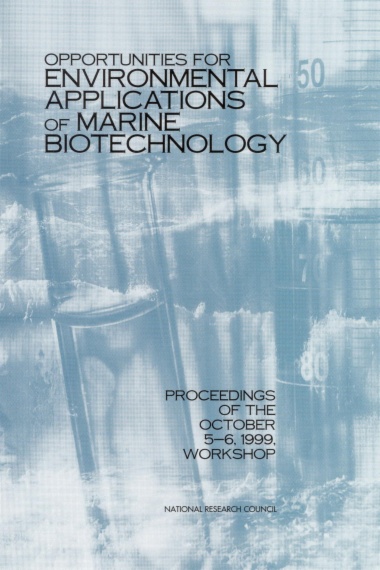This 2-day workshop is the culmination of a study of the status and future of marine biotechnology. The overall goal of this workshop is to examine what was initially called "Opportunities for Marine Biotechnology in the United States," to consider where we are now in this field of "Environmental Marine Biotechnology," to envision the field in the future, and to discuss any impediments that might be encountered along the way. Opportunities for Environmental Applications of Marine Biotechnology: Proceedings of the October 5-6, 1999, Workshop addresses the question of where the federal government should invest its limited funds and what future initiatives should be planned.
- Cover
- Front Matter
- Introduction and Goals
- Bacterial Biofilms and Bifouling: Translational Research in Marine Biotechnology
- Antifouling
- Economic and Regulatory Aspects of Marine Biotechnology
- Policy Considerations for Advancing Marine Biotechnology
- Applications of Economics in the Field of Environmental Marine Biotechnology
- Spilled Oil Bioremediation
- In Situ Bioremediation of Oiled Shoreline Environments
- Contributions of Marine Biotechnology to Marsh Oil Spill Restoration
- Constraints on the Use of Bioremediation in Wetlands
- Restoration
- Opportunities for Biotechnology for Coral and Reef Restoration
- Coral Epidemiology
- Use of Trace Metals in Marine Bioremediation: A Need for Fundamental Knowledge
- Microbial Contamination
- Molecular Biology and Biotechnology in Marine Toxicology
- Critical Needs in Harmful Algal Bloom Research
- The Need for New Biotechnological Tools for Conservation of Marine Environments
- Social and Regulatory Aspects of the Marine Environment
- Rapporteur Comments on the Bioremediation Session
- Appendix A: Workshop on Opportunities for Advancement of Environmental Applications of Marine Biotechnology
- Appendix B: Opportunities for Advancement of Environmental Marine Biotechnology

